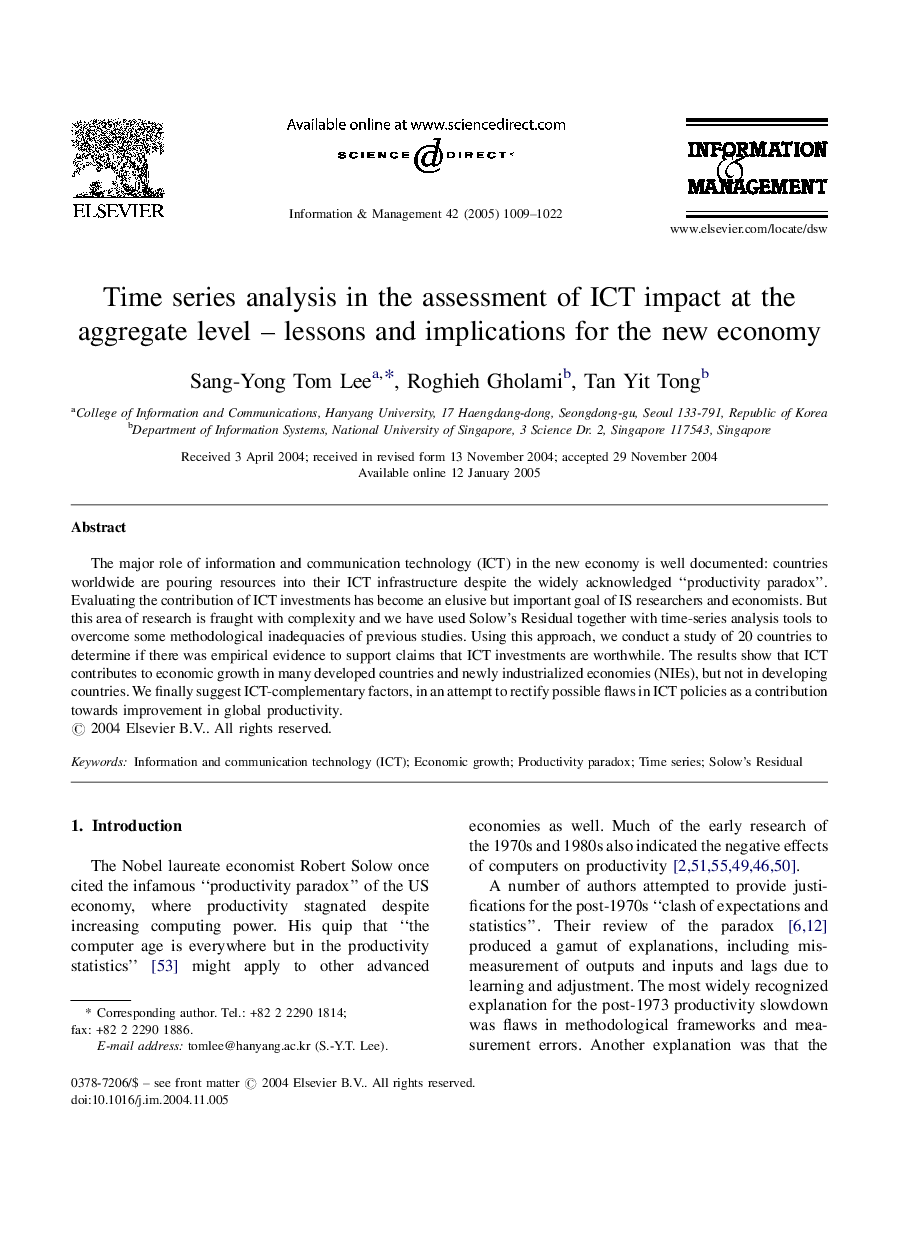| Article ID | Journal | Published Year | Pages | File Type |
|---|---|---|---|---|
| 10367657 | Information & Management | 2005 | 14 Pages |
Abstract
The major role of information and communication technology (ICT) in the new economy is well documented: countries worldwide are pouring resources into their ICT infrastructure despite the widely acknowledged “productivity paradox”. Evaluating the contribution of ICT investments has become an elusive but important goal of IS researchers and economists. But this area of research is fraught with complexity and we have used Solow's Residual together with time-series analysis tools to overcome some methodological inadequacies of previous studies. Using this approach, we conduct a study of 20 countries to determine if there was empirical evidence to support claims that ICT investments are worthwhile. The results show that ICT contributes to economic growth in many developed countries and newly industrialized economies (NIEs), but not in developing countries. We finally suggest ICT-complementary factors, in an attempt to rectify possible flaws in ICT policies as a contribution towards improvement in global productivity.
Keywords
Related Topics
Physical Sciences and Engineering
Computer Science
Information Systems
Authors
Sang-Yong Tom Lee, Roghieh Gholami, Tan Yit Tong,
